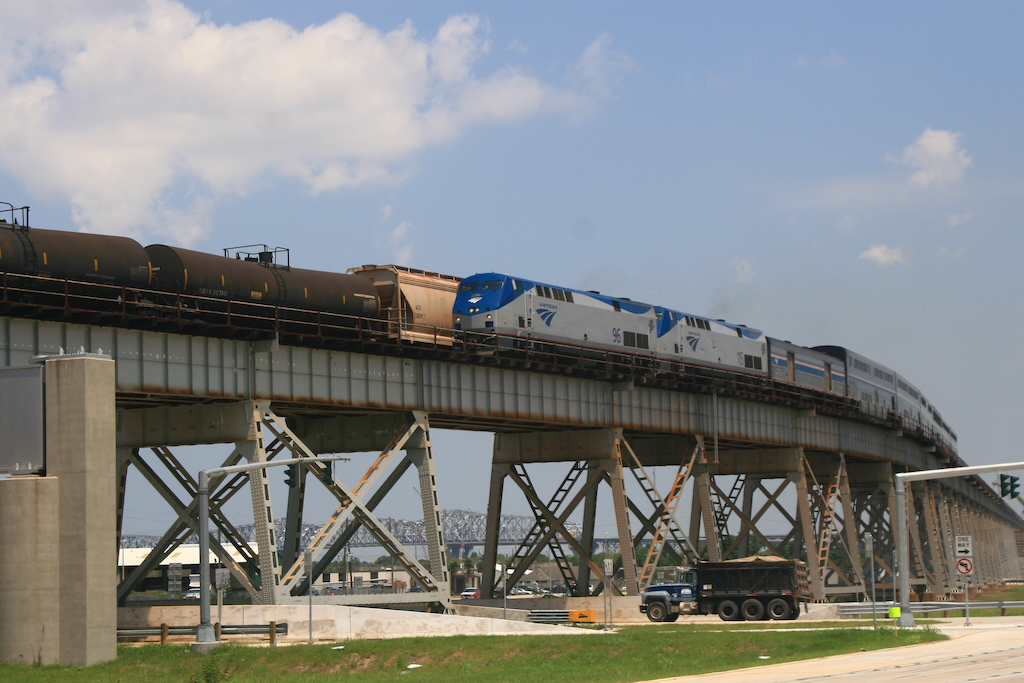
WASHINGTON — Delays to the Sunset Limited were largely due to causes that could be addressed by Union Pacific, which failed to provide the statutory right of preference required for passenger trains, Amtrak says in the document containing its opening argument in the Surface Transportation Board’s investigation into the Sunsets poor on-time performance between Oct. 1, 2021, and Sept. 30, 2022.
The passenger operator also sets out some 19 suggestions how the STB might address those delays, beginning with a recommendation that host railroads should not run trains that do not fit into available sidings “where the rail carrier knows or expects Amtrak trains are or will soon be operating.”
The 136-page document was filed Monday and made public on Tuesday, Oct. 8, marking the start of a new phase in the STB’s long-running examination of Sunset performance. Amtrak requested STB action in December 2022, the first such request under a 2008 law charging the board with investigating passenger on-time performance issues [see “Amtrak asks federal regulators to investigate …,” Trains News Wire, Dec. 9, 2022].
Since that time, the case has churned through delays requested by the parties involved, an STB determination of how it would proceed with the first-of-its-kind case [see “STB announces investigation …,” News Wire, July 11, 2023], and a series of requests for information on specific train delays and other operational details. Finally, in August, the board set a deadline for the end of the discovery portion of the proceeding and set the Oct. 7 date for the Amtrak statement [see “STB to end discovery portion …,” News Wire, Aug. 20, 2024].
Time and again, Amtrak’s argument cites specific Union Pacific statements to support its arguments that the railroad is responsible for delays through dispatching choices, mishandling of crew changes for freight trains, and other “careless operating decisions.” The public, however, will not know what those statements are. They all have been blacked out in the public version of the document; other redactions include striking any detail relating to contracts between Amtrak and host railroads, as well as such basic (and relatively easy to obtain) information as the number of sidings on certain portions of the UP. (Amtrak notes in its filing that UP initially designed its entire submission on root-cause analysis of delays, along with supporting documents, as “highly confidential,” preventing them from public submission. They were resubmitted with new confidentiality decisions, but large portions of the record clearly remain out of reach of the public.)
Other notable Amtrak statements and assertions in the filing include:
— Freight train interference was the cause of approximately 69% of all the train’s host-responsible delays, with an average of more than 15 such delays per trip and more than four hours of per-trip delay.
— Union Pacific’s adoption of the Precision Scheduled Railroading operating model is a factor. “The longer freight trains ushered in under PSR often are unable to fit into existing rail sidings,” the filing reads, “which complicates train movements and dispatching, sometimes causing cascading delays to Amtrak’s passenger trains by forcing them to wait in sidings for freight train ‘meets.’”
— Amtrak says it has turned down recent Union Pacific requests to lengthen the train’s schedule, based on past experience. “The abysmal on-time performance of the Sunset Limited … illustrates that lengthening Amtrak schedules to accommodate a host railroad’s poor performance and failure to comply with Amtrak’s preference rights does not produce acceptable on-time performance.” Since 1996, the filing states, the train’s schedule has been lengthened by 5 hours, 45 minutes westbound and 4½ hours eastbound, yet during the period that led to the case, on-time performance ranged from 7% to 40%.
This phase of the STB process is for determining the cause of delays, and making recommendations to address them; any potential award of damages or orders to address a violation of Amtrak’s right of preference would come in a second phase. Amtrak says it looks forward to providing further information in that stage of the proceeding, but in the meantime its 19 recommendations cover a wide range of railroad decision-making that can impede its passenger trains. (Examples: freight trains should not be dispatched ahead of an Amtrak train, if the passenger train is likely to catch up and have to follow the train; freight trains should be placed in sidings for meets to avoid passenger-train delays.)
The next phase in the proceeding will come Dec. 23, when railroad responses to the Amtrak filing are due.






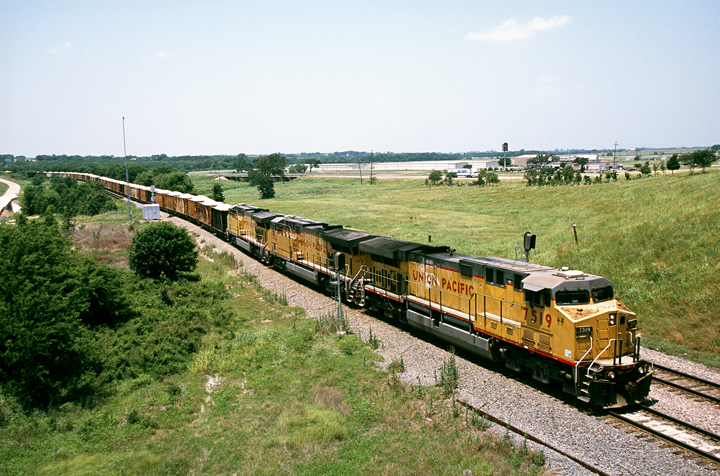
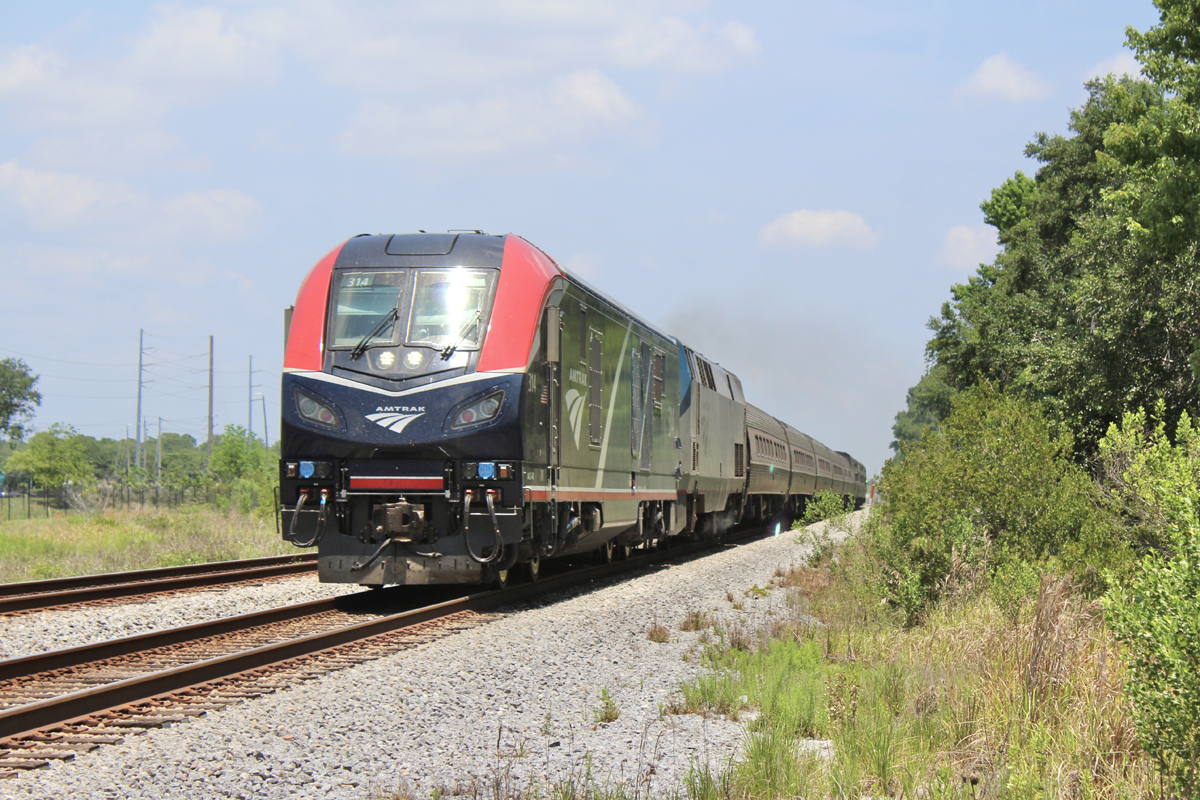
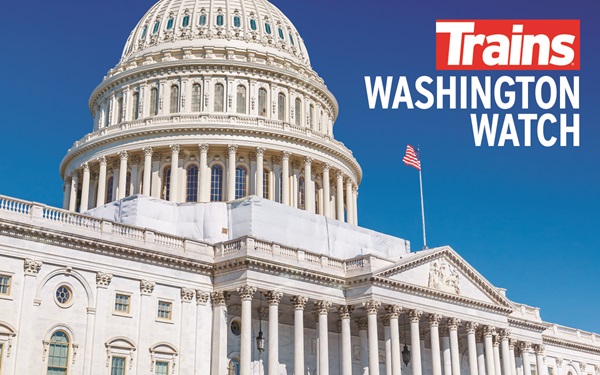
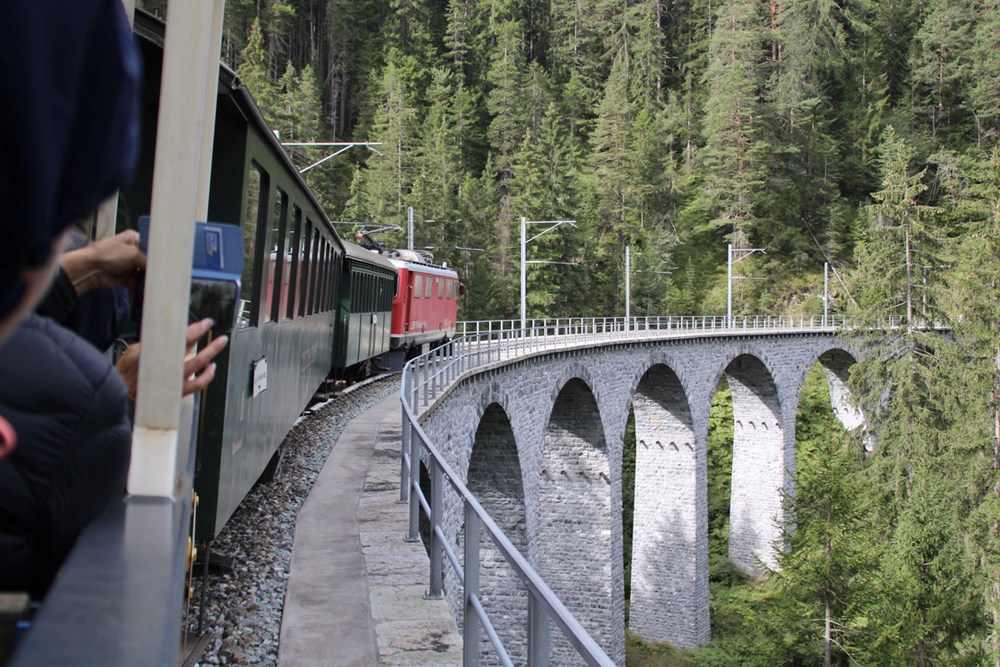




Maybe Amtrak should have their own tracks instead of complaining, that’s like inviting someone over for dinner, then complain the food you cooked isn’t to their liking.
When I saw “National Limited” I thought of an E-8, bag, 2 coaches. sleeper-lounge-boat-tail obs running on B&O 1-2. But that was before Amtrak. The sleeper-obs was Pullman-operated and served genuine Pullman fare.
I believe the thru NYP-NOL-LAX sleeper was overnight in NOL Eastward (parked in the station for occupancy) and around 8.00 PM arrival, 11.00 PM departure Westward. AMTK listed train as BOS-WAS but Amfleet consist ran NHV-NYP with E60 or GG1; power car on rear if GG1. NOL consist left Sunnyside with GG1 with working steam gen. At NYP Amfleet were coupled behind steam cars and power car behind Amfleet. Then off to WAS.
While punctuality is an issue with Amtrak on the Sunset Route, there is a need to revamp the schedules of trains. Connections in New Orleans are atrocious. An overnight layover in New Orleans is required between the ‘Crescent’ and the ‘Sunset Limited’ in both directions. [Before anyone gives a simplicite response about “going out on the town”, I have toured New Orleans before and I do not venture out late at night.]
Before the inception of Amtrak and Southern Pacific Railroad downgraded the ‘Sunset Limited’ to a tri-weekly coach-only train, my mother and I arrived on the Cincinnati – New Orleans ‘Pan-American’ after breakfast in the dining car. The ‘Sunset Limited’ stood across the platform as our train reversed to New Orleans Union Passenger Terminal. The Pullman porter announced to us, “There’s the ‘Sunset’!”
If I am remembering correctly, before the Southern Railroad turned over their routes to AMTRAK, Southern timed the Crescent’s arrival in New Orleans for a direct connection with the Sunset.
These hearing delays lessen the impact of the hearings themselves. Further, AMTRAK should be allowed to run the Sunset at least as fast as Southern Pacific did just before the handoff to AMTRAK.
Apples and oranges… When SP ran the Sunset prior to Amtrak, freight trains were a fraction of the length and frequency was even less due to the moribund status of SP itself. The fact is that Amtrak has never studied or provide a study that says how long it takes to run through conflicted areas where more than one railroad is responsible for operations, such as the New Orleans area where they want UP to be responsible for former SP track operated and maintained by BNSF and the New Orleans Public Belt (NOPB) Railroad. This is the most congested part of the whole Sunset Corridor and their solution is to blame UP for everything irregardless of who is actually operating it. When they wrote that UP was making “careless operating decisions…” I thought that Amtrak must be talking about its own operation procedures, not only on the New Orleans Sunset Route but everywhere else as well. Sounds a little like the Pot calling the Kettle black…
Mr. Saunders: I don’t doubt the validity of your comments. However, I am frustrated at how often AMTRAK and VIA keep lengthening their schedules every time a train can’t meet its timetable, particularly after complaints from freight railroads. Of course, I am more disgusted with how few cars make a passenger train these days. I am thinking of my regular rides on the National Limited in the early to mid 1970s with over a dozen sleepers and coaches.